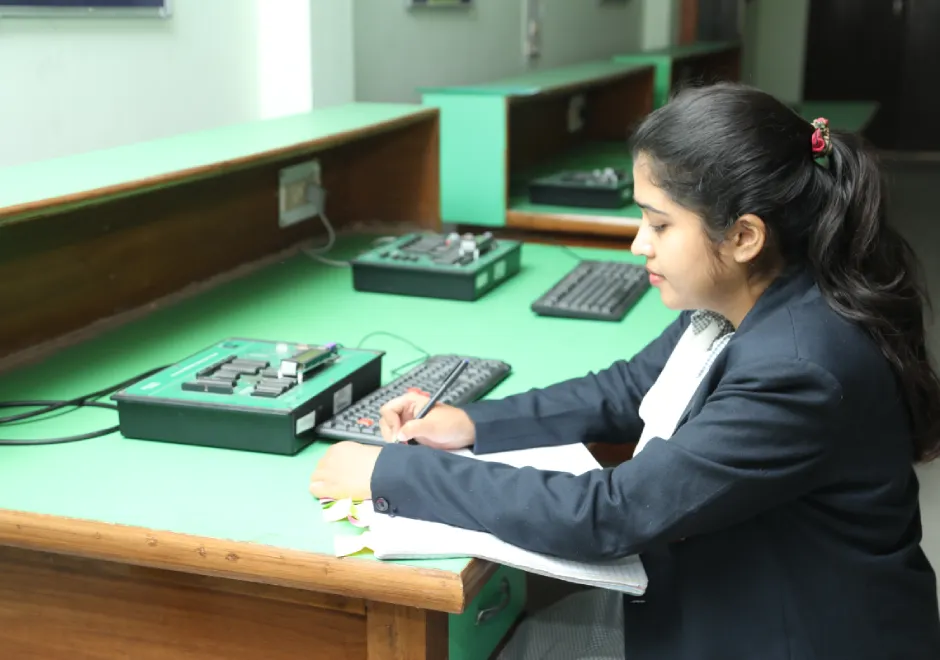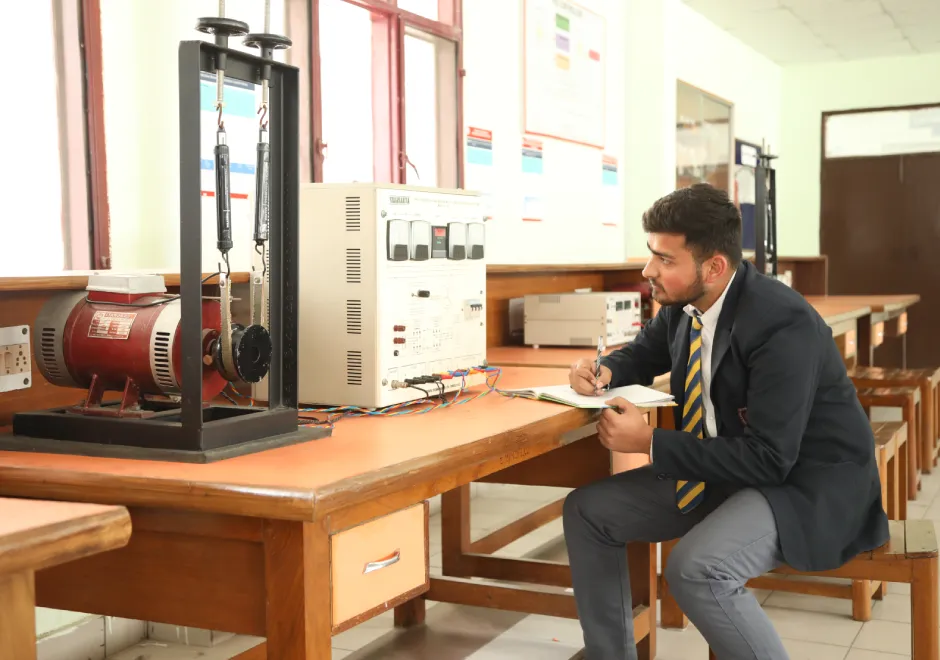
PhD in Electronics and Communication Engineering
Department of Electrical And Electronics Engineering
Duration
3 Years
Eligibility Criteria
Master’s Degree from any AIU/UGC/AICTE recognized University /Institutions or any other qualification recognized as equivalent thereto in the fields of study notified from time to time by the University. A minimum of 55% marks or CGPA of 5.5 on a 10-point scale in the qualifying examination (50% marks or CGPA of 5.0 on a 10-point scale for SC/ST candidates).

The Department of Electrical and Electronics Engineering is a center of innovation for electrical systems and electronics, offering a dynamic learning environment that cultivates creativity and problem-solving skills.
The Ph.D. in Electronics and Communication Engineering is a research-driven program designed for scholars aiming to explore and innovate in areas such as communication systems, microelectronics, VLSI design, embedded systems, 5G/6G, IoT, and AI-driven networks. The program emphasizes original research, hands-on experimentation in advanced laboratories, and collaboration with industry and academia. Graduates are prepared to contribute as leading researchers, innovators, and academicians, addressing both technical advancements and their societal impact.
Apply NowAdmissions 2025
Find your path to Success
Program Outcomes POs
-
PO1
Engineering Knowledge: Apply the knowledge of mathematics, science, engineering fundamentals, and an engineering specialization to the solution of complex engineering problems.
-
PO2
Problem Analysis: Identify, formulate, review research literature, and analyze complex engineering problems reaching substantiated conclusions using first principles of mathematics, natural sciences, and engineering sciences.
-
PO3
Design/development of solutions: Design solutions for complex engineering problems and design system components or processes that meet the specified needs with appropriate consideration for the public health and safety, and the cultural, societal, and environmental considerations.
-
PO4
Conduct investigations of complex problems: Use research-based knowledge and research methods including design of experiments, analysis and interpretation of data, and synthesis of the information to provide valid conclusions.
-
PO5
Modern tool usage: Create, select, and apply appropriate techniques, resources, and modern engineering and IT tools including prediction and modelling to complex engineering activities with an understanding of the limitations.
-
PO6
The engineer and society: Apply reasoning informed by the contextual knowledge to assess societal, health, safety, legal and cultural issues and the consequent responsibilities relevant to the professional engineering practice.
-
PO7
Ethics: Apply ethical principles and commit to professional ethics and responsibilities and norms of the engineering practice.
-
PO8
Individual and team work: Function effectively as an individual, and as a member or leader in diverse teams, and in multidisciplinary settings.
-
PO9
Project management and finance: Demonstrate knowledge and understanding of the engineering and management principles and apply these to one’s own work, as a member and leader in a team, to manage projects and in multidisciplinary environments.
-
PO10
Life-long learning: Recognize the need for, and have the preparation and ability to engage in independent and life-long learning in the broadest context of technological change.
Program Educational Objectives PEOS
-
PEO1
To build the soundest professional career and/or be capable enough to further acquire higher education by attaining sufficient knowledge, understanding, and practical skills in the domain.
-
PEO2
To comprise exemplary attitude, communication skills, teamwork, and administration in their occupation and adjust to lifelong learning.
-
PEO3
To includes vast academic and experimental knowledge of fundamentals to enable them to use it to expand the enterprise and community in general.









